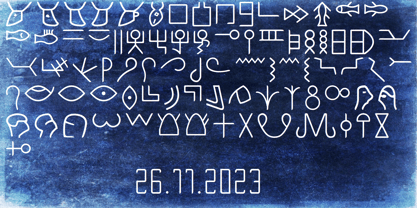10,000 search results
(0.965 seconds)
- Carlista Buttery - Personal use only
- HALCION PERSONAL USE - Personal use only
- Jellyka King's Hat - Personal use only
- Pushkin - Unknown license
- Rebellion Knight Personal Use O - Personal use only
- Ivory Chill - Personal Use - Personal use only
- Janda As Long As You Love Me - Personal use only
- Many Weatz - Personal use only
- Calligraphy Pen - Personal use only
- Feathergraphy Decoration - Personal use only
- Greatday - Personal use only
- Lucemita - Personal use only
- Uecker - 100% free
- Deloise - Unknown license
- Klarissa - Personal use only
- _a e i o u - Personal use only
- 2006 - Personal use only
- Velocette - Unknown license
- silent witness - Personal use only
- the King & Queen font - Unknown license
- Throrian Commonface - 100% free
- Letters - Unknown license
- Héloïse - Unknown license
- MachineScript - Unknown license
- TagettesPlus - Personal use only
- Porcelain - 100% free
- Easter Parade - Unknown license
- Tristan - Unknown license
- Ringbearer - Unknown license
- RoboKoz - Unknown license
- Paulinho Pedra Azul - Unknown license
- Persia BT by Bitstream,
$50.99 - Ongunkan Proto Canaanite by Runic World Tamgacı,
$75.00 - Romanicum - Personal use only
- Gothic Initials One by Gerald Gallo,
$20.00 - Gothic Initials Three by Gerald Gallo,
$20.00 - Gothic Initials Seven by Gerald Gallo,
$20.00 - Gothic Initials Four by Gerald Gallo,
$20.00 - Gothic Initials Six by Gerald Gallo,
$20.00 - Gothic Initials Two by Gerald Gallo,
$20.00






































